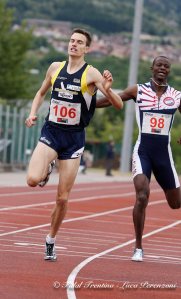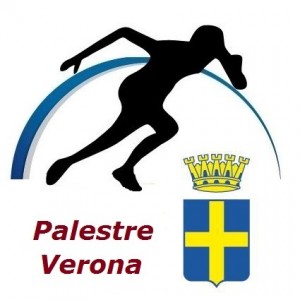Fewer than one third of physicians are following current recommendations and giving exercise advice to patients with osteoarthritis or sciatica, according to a balanced factorial experiment among 192 primary care physicians in the United States.
Nancy N. Maserejian, ScD, a senior research scientist and associate director of epidemiology at New England Research Institutes, Inc, Watertown, Massachusetts, and colleagues report their findings in an article published online October 8 in Arthritis Care & Research.
“[T]his experiment found variation in the quality of musculoskeletal pain management decisions, particularly to provide exercise and other lifestyle advice, associated with physicians’ years in practice and organizational cultural values. Generally, newer physicians had greater adherence to current recommendations,” the authors write.
The physicians watched 2 videos of different patients (actors) who presented with pain from either undiagnosed sciatica symptoms or diagnosed knee osteoarthritis and completed short interviews after regarding what their recommendations would be to the patient.
Unconfounded effects were estimated by analyzing systematic variations in patient sex, socioeconomic status, race, and physician sex and experience (<20 vs >20 years in practice).
Associations between patient or provider attributes and clinical decisions were evaluated using variance analysis.
Current recommendations of the American College of Rheumatology, American Pain Society, and clinical expert consensus were used to judge the quality of decisions.
Less than one third of physicians reported they would give exercise advice (30.2% for osteoarthritis, 32.8% for sciatica). Physicians in practice for fewer years were more likely to give advice on lifestyle changes (P = .01), especially regarding exercise habits (39.6% of newer physicians vs 26.0% of more experienced physicians for sciatica or 20.8% of more experienced physicians for osteoarthritis).
Newer physicians were also more likely to prescribe nonsteroidal anti-inflammatory drugs for pain relief (68.8% vs 52.1 [P = .01] for the sciatica patient; 80.2% vs 67.7% [P = .02] for the osteoarthritis patient).
Newer physicians were less likely to order tests (sciatica, mean 1.9 vs 2.5 tests [P = .01]; osteoarthritis, 2.4 vs 2.9 tests [P = .07]), especially basic laboratory tests (eg, complete blood count or metabolic panel, 9.4% vs 21.9%; P = .02) and urinalysis (4.2% vs 16.7%; P = .003), particularly for sciatica. For the patient with osteoarthritis only, X-rays were more often ordered by newer physicians (85.4% vs 69.8%).
Test ordering fell as the organization’s emphasis on business or profits rose.
Patient factors and sex of the physician had inconsistent effects on the evaluation and treatment of pain.
“Overall, the observed variations in decision-making were still largely unexplained even after accounting for all the patient, provider, and organizational variables that were statistically significant in the multivariable models,” the authors write. “Methods to more effectively disseminate current recommendations for diagnosis and management of pain conditions should be developed and tested to improve the quality of care for these common clinical problems,” they conclude.
Variations among primary care physicians in exercise advice, imaging, and analgesics for musculoskeletal pain: Results from a factorial experiment
Nancy N. Maserejian ScD, Michael A. Fischer MD, MS, Felicia L. Trachtenberg PhD, Jing Yu MS, Lisa D. Marceau MPH, John B. McKinlay PhD, Jeffrey N. Katz
Accepted Articles, Accepted manuscript online: 8 OCT 2013
ABSTRACT
Objective. To examine whether medical decisions regarding evaluation and management of musculoskeletal pain conditions varied systematically by characteristics of the patient or provider.
Methods. We conducted a balanced factorial experiment among primary care physicians in the U.S. Physicians (N=192) viewed two videos of different patients (actors) presenting with pain: (1) undiagnosed sciatica symptoms or (2) diagnosed knee osteoarthritis. Systematic variations in patient gender, socioeconomic status (SES), race, physician gender and experience (<20 vs. ≥20 years in practice) permitted estimation of unconfounded effects. Analysis of variance was used to evaluate associations between patient or provider attributes and clinical decisions. Quality of decisions was defined based on the current recommendations of the ACR, American Pain Society, and clinical expert consensus.
Results. Despite current recommendations, under one-third of physicians would provide exercise advice (30.2% for osteoarthritis, 32.8% for sciatica). Physicians with fewer years in practice were more likely to provide advice on lifestyle changes, particularly exercise (P≤0.01), and to prescribe NSAIDs for pain relief, both of which were appropriate and consistent with current recommendations for care. Newer physicians ordered fewer tests, particularly basic laboratory investigations or urinalysis. Test ordering decreased as organizational emphasis on business or profits increased. Patient factors and physician gender had no consistent effects on pain evaluation or treatment.
Conclusion. Physician education on disease management recommendations regarding exercise and analgesics, and implementation of quality measures may be useful, particularly for physicians with more years in practice. © 2013 American College of Rheumatology.



